As a dedicated duck keeper, I’ve often pondered the question: can ducks eat worms? I’ve found the answer to be a resounding yes. These squiggly little creatures are not only safe but also a nutritional powerhouse for our quacking companions, providing them with the essential protein they need to thrive.
In my journey through the ins and outs of duck diets, I’ve learned the importance of balance and variety. Feeding my ducks worms has become more than just a dietary choice; it’s a practice that ensures their health and happiness, one that requires careful consideration and a sprinkle of love.

Overview of Ducks’ Diet
Ducks’ palates are as varied as their habitats, feasting on everything from seeds to snails. A balanced diet is key, and protein plays a starring role in keeping them healthy and sprightly.
Natural Food Sources for Ducks
Ducks are not picky eaters. In their natural habitat, they chow down on various goodies that Mother Nature offers. From tiny seeds and nuts to juicy berries and, of course, an array of aquatic plants, ducks have a buffet spread out before them.
Importance of Protein in a Duck’s Diet
Just like us, ducks need their protein to stay strong and healthy. It’s not just about building muscle; protein is vital for feather development and overall growth. That’s why protein-packed snacks, like worms, can be an excellent addition to their diet.
Common Misconceptions About What Ducks Can Eat
You might think that bread is a duck’s favorite food, but it’s more like junk food for them. Feeding ducks bread is a no-no, as it doesn’t provide the nutrition they need and can even harm their health and environment.
[DuckAffiliate]
Worms as a Food Source
Worms wriggle their way into the diet of many duck species, serving as a nutritious snack packed with protein. These slimy invertebrates come in many shapes and sizes, each with its own set of benefits for our feathered friends.
Types of Worms Ducks May Encounter
Let’s dig into the world of worms. There’s a variety out there: earthworms, mealworms, and even bloodworms, each with its own special place in a duck’s diet. They’re like the different flavors of ice cream, and ducks usually love them all!
Nutritional Value of Worms for Ducks
Worms are like nature’s protein bars. They’re packed with essential nutrients that help ducks keep their energy up and support their overall health. Plus, they’re soft and easy to gobble up – no tough shells or skins to deal with.
The Role of Worms in Wild and Domestic Ducks’ Diets
Whether a duck is splashing around in a pond or hanging out in a backyard coop, worms can be part of the daily menu. They’re a natural food source that ducks would hunt for themselves, so offering them as a snack is like providing a taste of the wild.
The Safety of Worms for Ducks
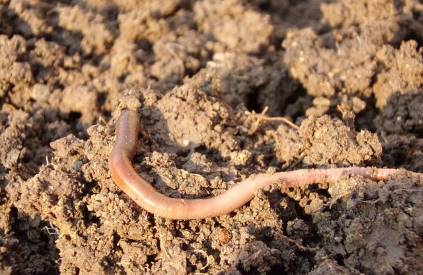
While worms are a nutritious treat, not all are created equal; some can harbor parasites harmful to ducks. Ensuring the safety of these critters before they become a meal is paramount to prevent health issues.
Potential Parasites and Diseases in Wild Worms
It’s not all sunshine and rainbows; some worms can carry parasites and diseases that can make ducks sick. It’s like eating sushi – you want to ensure it’s safe before taking a bite.
How to Ensure Worms Are Safe for Duck Consumption
To keep things safe, it’s best to source worms from reputable suppliers, or if you’re feeling adventurous, raise your own. This way, you know exactly what the ducks are eating, and you can ensure they’re getting the good stuff without any nasty extras.
Signs of Worm-Related Health Issues in Ducks
Keep an eye on your feathered friends after they munch on worms. Changes in their behavior or droppings can signal that something’s amiss. Quick action can keep a simple tummy ache from turning into a more significant issue.
Feeding Worms to Ducks
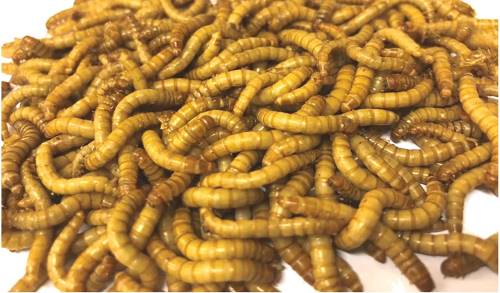
Moderation is key when introducing worms into a duck’s diet, as it is with any treat. Knowing the right amount and frequency can help maintain a healthy and balanced diet for ducks of all breeds.
Appropriate Portion Sizes of Worms for Different Duck Breeds
Not all ducks are created equal. Different breeds have different appetites and nutritional needs. It’s like people – some may thrive on a few worms, while others need a handful to feel satisfied.
How Often Should Ducks Be Fed Worms
Think of worms as a treat, not an entire course. Sprinkling them into the diet a few times a week is plenty. It’s all about balance and ensuring they’re still gobbling up their regular meals.
The Best Way to Incorporate Worms into a Duck’s Diet
Mixing worms into their regular feed or scattering them on the ground can make mealtime exciting. It encourages natural foraging behavior and keeps mealtime fun.
Alternatives to Worms
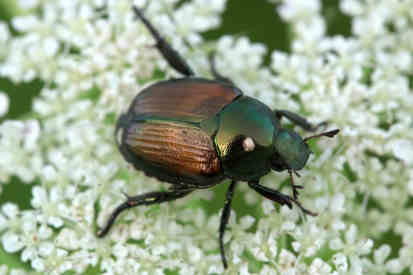
For ducks, dietary variety isn’t just the spice of life—it’s essential for a well-rounded diet. Exploring safe and nutritious insect alternatives can keep meals exciting and healthy for ducks.
Other Insects That Are Safe for Ducks to Eat
If worms aren’t your thing or you want to mix it up, other insects can also be safe and nutritious for ducks. Think crickets, beetles, or even fly larvae. Variety is the spice of life, after all.
Commercial Duck Feed Options Including Insect Proteins
For those looking for convenience, many commercial feeds now include insect protein. They’re formulated to give ducks the nutrients they need, and they take the guesswork out of balancing their diet.
Homemade Duck Treats Using Safe Protein Sources
Getting creative in the kitchen isn’t just for humans. Whipping up homemade treats for your ducks using safe protein sources can be a fun way to ensure they’re getting what they need. Plus, it’s rewarding to see them enjoy the fruits of your labor.
Observing Ducks Eating Habits
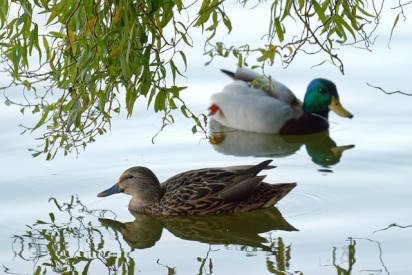
Observing ducks as they peck at their food can offer insights into their preferences and well-being. Introducing new foods like worms should be monitored to gauge enjoyment and health effects.
How to Tell if Your Ducks Enjoy Eating Worms
Ducks aren’t shy about showing their pleasure. If they’re eagerly gobbling up worms and actively searching for more, it’s a good bet they’re fans. Look for excited quacks and a lot of beak action.
Changes in Behavior When Introducing Worms to a Duck’s Diet
Just like introducing a new food to a toddler, start with a small amount and watch how they react. Are they more energetic? Do they seem happier? These little clues can tell you if worms are a hit.
Monitoring the Health Impact of Worms on Ducks
Keeping a close eye on how your ducks react to their new wormy treats is vital. Healthy feathers, clear eyes, and active behaviors are good signs. If you notice positive changes, you’ve probably found a treat that’s both delicious and nutritious for them.
Responsible Worm Feeding Practices
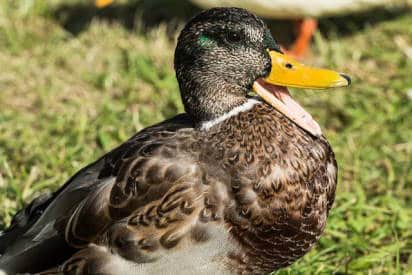
Sourcing worms sustainably and understanding the environmental impact of feeding practices ensures that our feathered friends and their ecosystems remain in harmony. It’s all about feeding wisely and conscientiously.
Sustainable Sourcing of Worms for Feeding Ducks
It’s essential to think about where your worms come from. Sustainable sourcing means considering the environment and the welfare of the worms. It’s about being a responsible pet owner and a friend to the planet.
Understanding the Environmental Impact of Overfeeding
Feeding ducks too many worms can lead to leftovers, which can attract pests and disrupt the local ecosystem. It’s like leaving a picnic spread out overnight; nobody wants uninvited guests.
The Balance Between Natural Foraging and Supplemental Feeding
Supplemental feeding should complement, not replace, natural foraging. It encourages ducks to keep up their natural behaviors and ensures they get a well-rounded diet. It’s all about finding that sweet spot.
What other animals can ducks eat apart from worms?

Ducks are known for their opportunistic feeding habits, often leading them into a diverse menu beyond the usual suspects like worms. In their constant quest for food, ducks may encounter various other creatures, but not all are equally beneficial or safe to consume. Let’s explore some of these potential food items and understand their place in a duck’s diet.
Ticks
Ticks might not be the first thing you think of when considering a duck’s diet. Still, these tiny arachnids can be quite beneficial for ducks to eat. Ducks can help control tick populations in your garden or farm, and in turn, ticks provide an excellent source of protein. However, it’s important to ensure that the ticks are not carrying diseases that could be transmitted to the ducks.
Read More: Can Ducks Eat Ticks? Discover Surprising Benefits
Snakes
While it might seem alarming, ducks can and sometimes do eat small snakes. It’s a less common item on their menu, and generally, ducks should not rely on snakes as a food source. Smaller, non-venomous snakes that can be easily overpowered might be safe, but there is always a risk of injury or ingestion of a potentially venomous snake, which would be detrimental.
Read More: Can Ducks Eat Snakes? Discover the Truth
Tadpoles
Tadpoles are a more common snack for ducks, particularly when they’re foraging in shallow waters. They are safe for ducks to consume and are a good source of protein. Eating tadpoles can be considered part of the ducks’ natural foraging behavior and is beneficial for their diet.
Read More: Can Ducks Eat Tadpoles? Explore Safe Feeding Tips
Turtles
Turtles, on the other hand, are not an advisable food source for ducks. Baby turtles might be small enough for ducks to attempt to eat, but they can pose a choking hazard, and their hard shells can cause digestive issues. Furthermore, many turtle species are protected, and allowing ducks to feed on them can harm local ecosystems.
Read More: Can Ducks Eat Turtles? The Truth Revealed
Snails
Snails are another invertebrate that ducks may find in their environment, and they are generally safe for ducks to eat. They are a good source of protein, calcium, and other nutrients. However, it’s important to note that some snails can be intermediate parasite hosts, so ducks should only consume snails from safe, uncontaminated sources.
Read More: Can Ducks Eat Snails And Slugs? 3 Surprising Benefits
Can ducks eat worms – final thoughts
Worms have emerged as a star in the duck diet, offering both nutritional value and dining pleasure. Our observations confirm it: ducks relish these protein-packed snacks. Yet, the art of feeding worms to ducks is a lesson in balance – moderate portions, diverse choices, and a keen eye on safety. It’s about delighting our ducks with every peck, ensuring a happy flock and a healthy pond life.
Related Articles:
